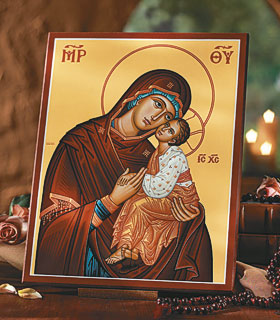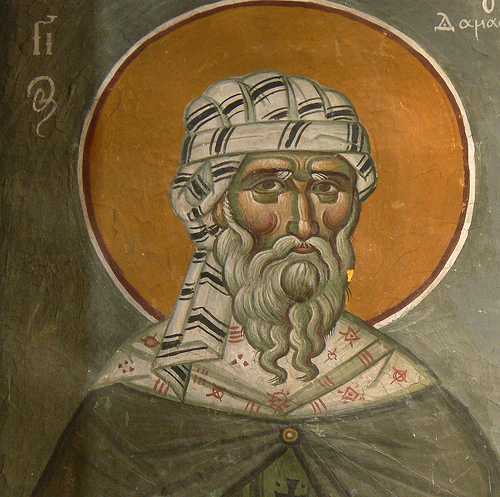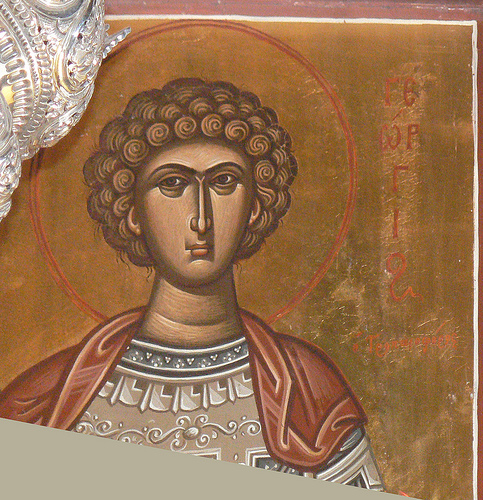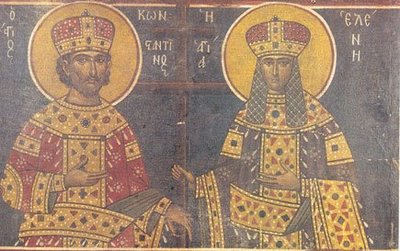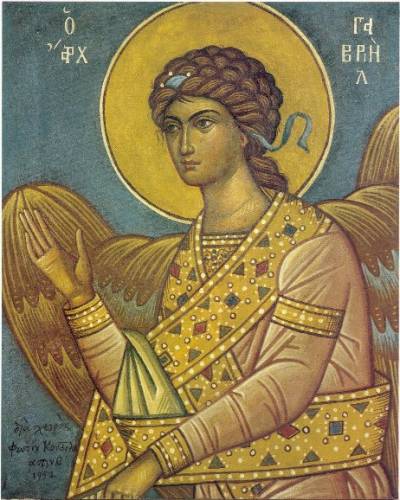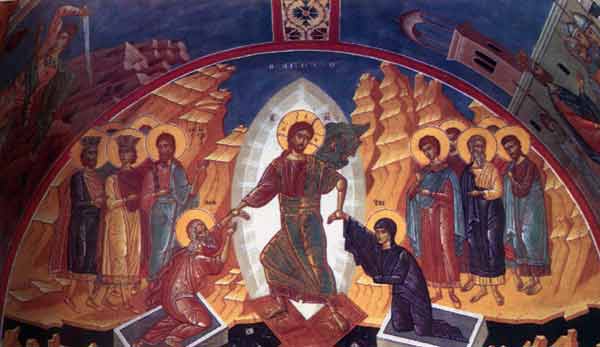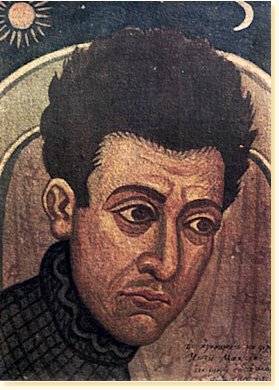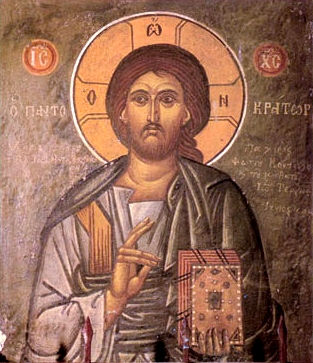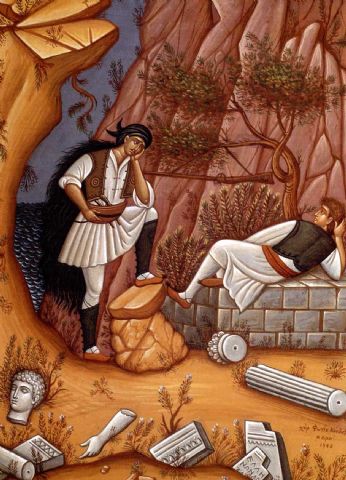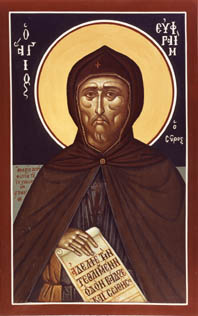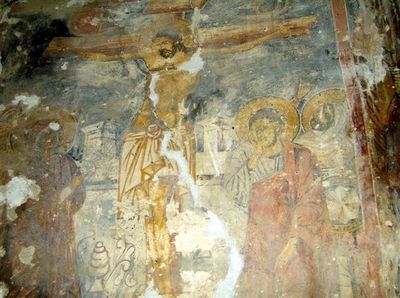<Back to Index>
- Mathematician Felix Hausdorff, 1868
- Painter Fotios Kontoglou, 1895
- King of Sweden Karl X Gustav, 1622
PAGE SPONSOR
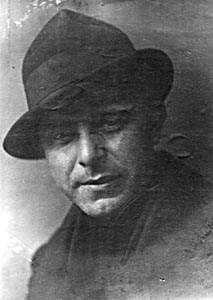
Photis Kontoglou (Greek: Φώτης Κόντογλου, occasionally signed also as Kontoglous - b. Aivali or Ayvalik c. 1895 - d. Athens 1965) was a Greek writer, painter and iconographer.
He was raised by his mother, Despoina Kontoglou, and his uncle Stefanos Kontoglou, who was abbot in the nearby monastery of Aghia Paraskevi. He spent his childhood among the monastery, the sea and the fishermen. In 1913, he enrolled at the Athens School of Fine Arts. From 1915 onwards, he spent a lot of time travelling to places such as Spain, France, Portugal, Angola. He afterwards moved to Paris.
However, he soon returned to Asia Minor to visit his family. There he eye-witnessed the events of 1922 and he returned to Greece as a refugee. In 1923, he stayed for some time at the monasteries of Mount Athos, where he discovered the technique of Byzantine iconography. Two years later, he got married with Maria Hatzikambouri, who was also from Aivali.
In 1933, he was invited by the Egyptian government to work for the Copt Museum. However, he decided to stay in
Athens and he delivered classes of painting at the National
and Kapodistrian University of Athens. Among his students were some of the
most important modern Greek painters. The
first time attention was paid at his work was during his residence in
Paris, where he received a prize for the illustrations he made for the
work of Knut Hamsun Famine. However, it
was his illustrations for his own book, Pedro Kazas, that
made him famous. Kontoglou
was a particularly productive artist. A devout Orthodox
Christian, he was a strong influence in the reintroduction of
traditional
Byzantine and
postbyzantine style in church iconography, though not all of his
painting was religious. He undertook the restoration of the frescos of
the Perivleptos church in Mystras.
Furthermore, he painted frescos in various churches all around Greece;
among them the Kapnikarea church in Athens. He also
painted the monumental fresco of the Patriarchs of
Constantinople at
the town hall of Athens. Together
with his students Yannis
Tsarouchis and Nikos
Engonopoulos he
painted the walls of his house. At present, these paintings can be
found at the National Gallery in Athens. Kontoglou also wrote various works of literature as well as numerous essays. Among his most famous students are
Yannis Tsarouchis and Nikos Engonopoulos.

